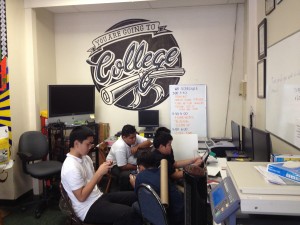SAN FRANCISCO — In what is seen as a groundbreaking initiative by a city government, the City of San Francisco in December approved the release of $100,000 to a Filipino-led nonprofit to launch a one-of-a-kind, culturally sensitive college preparatory program for low-income Filipino immigrant youth and other communities of color in the South of Market district.
With the strong support of District 6 Supervisor Jane Kim, the South of Market Community Action Committee, and the South of Market Youth Collaborative, City Hall granted the funds that would allow West Bay Pilipino Multi Service Center, the oldest Filipino American nonprofit in Northern California, to launch a college prep program early next year.
“This is a historic moment for the Filipino American community,” said Vivian Zalvidea Araullo, West Bay Pilipino’s executive director. “As far as I can tell, there is no other city government that has shown tremendous support for the welfare of underserved Filipino immigrant youth aspiring for higher education.”
According to a May 2014 study commissioned by the API Council, Filipinos have among the highest high school dropout rates in San Francisco, with an alarming increase from 2.3 percent in 2009 to 3.8 percent as of 2012, which is more than half the San Francisco average of seven percent.
The college prep program aims to help low-income youth from the Filipino American community and other communities of color bring up their SAT scores to increase their chances of qualifying for college.
It will assist youth in getting financial aid and scholarships that would allow them to afford college. Other features include college campus tours and career talks to enable youth and their families to make informed choices.
In the context of Filipino culture, youth who obtain college degrees are expected to help lift their own immediate families out of poverty, as well as start their own future families on the right foot.
“San Francisco’s move to invest in West Bay’ Pilipino’s college prep program will help address poverty not only in these youths’ families of origin, it will also help stop perpetuating the cycle of poverty in our community in the future,” Araullo explained. The program is also expected to serve youth of other ethnicities. Twenty percent of West Bay’s youth population is African-American.
The program is expected to help address the worsening income and social inequality gap in San Francisco.



